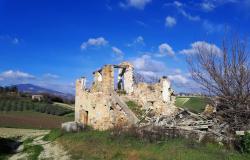edit - I hate it
Submitted by alan h on Mon, 11/16/2009 - 04:33In reply to A newbie all over again! by Annec
twice apparently!
Submitted by alan h on Mon, 11/16/2009 - 04:34In reply to A newbie all over again! by Annec
Not a Happy Situation
Submitted by alan h on Mon, 11/16/2009 - 04:35In reply to A newbie all over again! by Annec
You ask ;- "Any advice?" I think you may well have just about answered it in the penultimate sentence of your posting, where you write;- "Our lawyer is being rather inconclusive on this matter and we don't want to spend hundreds of thousands on a restoration only to discover 10 years down the line that the legal title wasn't as good as it should have been!" If you cannot get a definitive answer [in writing] from your lawyer, I think you have 3 options
- Buy it anyway - probably not a good idea
- Seek [at cost to you] a second legal opinion, in the hope that that will give you a definitive result
- Walk away from the property
Me? - I'd plump for option 2, with the fall back of option 3 [unless you are prepared to accept the possibility of losing the house, and your money, at some time in the future, in which case just go to option 1] Good Luck
To me this seems pretty
Submitted by Ram on Mon, 11/16/2009 - 04:57In reply to A newbie all over again! by Annec
To me this seems pretty normal! The only problems with donations, and Charlotte will correct me if Im wrong, is that the donors have to live for a certain time (5 or 7 years) after the event, otherwise its seen as tax evasion. If they live this time, there is no problem with a long lost son turning up to claim his leggitima. There is no way of evading the leggitima in Italian law - but rather it all depends on the donors iving long enough to make the deal watertight. I have sold many properties that have been the subject of donations and the notaio has never raised it as a possible problem in the future.
Possible scenario
Submitted by brancusi on Mon, 11/16/2009 - 07:36In reply to A newbie all over again! by Annec
The donors have already lived 7 years past the donation, however that doesn't appear to be the risk in this case.There seem to be many possible scenarios that could cause a problem, but here is one.Imagine the 2 daughters fall out with each other and 1 falls out with the donors completely. Donors re-write will to leave all their estate to 1 daughter. Then, a week before the donors die, they win the lottery.1 daughter is delighted, she has just inherited millions. She gets the money and flees the country to Argentina.The other is less delighted, but being now estranged doesn't find out about this until several years later.She has obviously been deprived of her leggitima, but it seems that one option she has is to seek to reverse any donations in order to recoup some of her loss and this would put our restored house at risk. The actual nature of the scenario doesn't really matter, my point is just that it seems scenarios DO exist (my one could even be flawed) that put the property at risk and I can't get a clear answer. I wonder about the notaio in all of this as well because it seems that there is a Notarised document from the other daughter waiving her claim on the property and indemnifying our buyer and any subsequent person etc etc, but our lawyer says this document has no legal status as this right is not something she is able to waive.So whilst the estate agent is saying this is not a problem, and the notary is saying it is (probably) not a problem, our lawyer continues to mention it and it seems it is a real - but maybe small risk. Everything is of course fine as long as the family are all getting on with each other, but I have direct experience of family rifts that can arise seemingly out of nowhere and last for decades, so I am perhaps more switched on to the possibilities than some others may be.It seems to me that if everyone is saying the risk is small, it should be an insurable risk? This is the sort of thing an indemnity policy could be used for in the UK and for example when I bought my flat I needed one of those due to issues with planning conformance and this was duely raised again when I sold the flat and again, an indemnity policy was put in place to cover it.Thanks for the feedback so far ... the more the merrier!
In reply to Possible scenario by brancusi
If the donation is a public
Submitted by Ram on Mon, 11/16/2009 - 11:25In reply to A newbie all over again! by Annec
If the donation is a public act, then it is surely all and dusted inasmuch as the 'estranged daughter' in your scenario would have a right to her legittima for the lottery winnings - cripes this is getting complicated! What I mean is, a donation is an act like any other and I cant see what the problem could be if the donors continue to live for the safe period. I would get Charlottes opinion and take it from there, but I wonder if the avvocato is playing up the risks because of other reasons.
Brancusi,I just wanted to
Submitted by Lisa C. on Tue, 11/17/2009 - 16:50In reply to A newbie all over again! by Annec
In reply to A newbie all over again! by Annec
The 7 year thing may be a red herring.In UK a gift is deemed full and final the instant the gift is made. Tax on the gift is potentially liable for 7 years following the gift, so would take effect if the donor died during that period, but the gift is not affected.(Italy may have a totally different law, of course, so I could be totally wrong!)
Donazione
Submitted by Charlotte Oliver on Thu, 11/26/2009 - 05:04In reply to A newbie all over again! by Annec
I agree that the 7 year rule is a red herring. This relates to potentially exempt (from inheritance tax) transfers ie gifts and applies to those who would otherwise be subject to paying tax in the UK.Once the property given in donazione is sold to a third party, it cannot be reclaimed. The problem will lie between the heirs. One of the heirs could claim that the heir who was given the property pay back into the estate the value of the property they received. These rules are set out in the Italian Civil Code Art 737 - 751 "Collazione" .The property could not be reclaimed from yourselves or from the original buyer who bought from the donee.I agree the waiver is not binding, but the only person who could be sued is the daughter herself.Please do get another opinion in writing or seek further clarification from your lawyer on the law I have quoted here, and also from the Notary. Remember that as buyer it is up to you to choose a Notary, so make sure that the sale is going to be witnessed by a Notary who is genuinely reputable in your area, as many Notaries do make mistakes and can also be negligent. Do not always accept a Notary recommended by an Agent or the Seller. Charlotte















